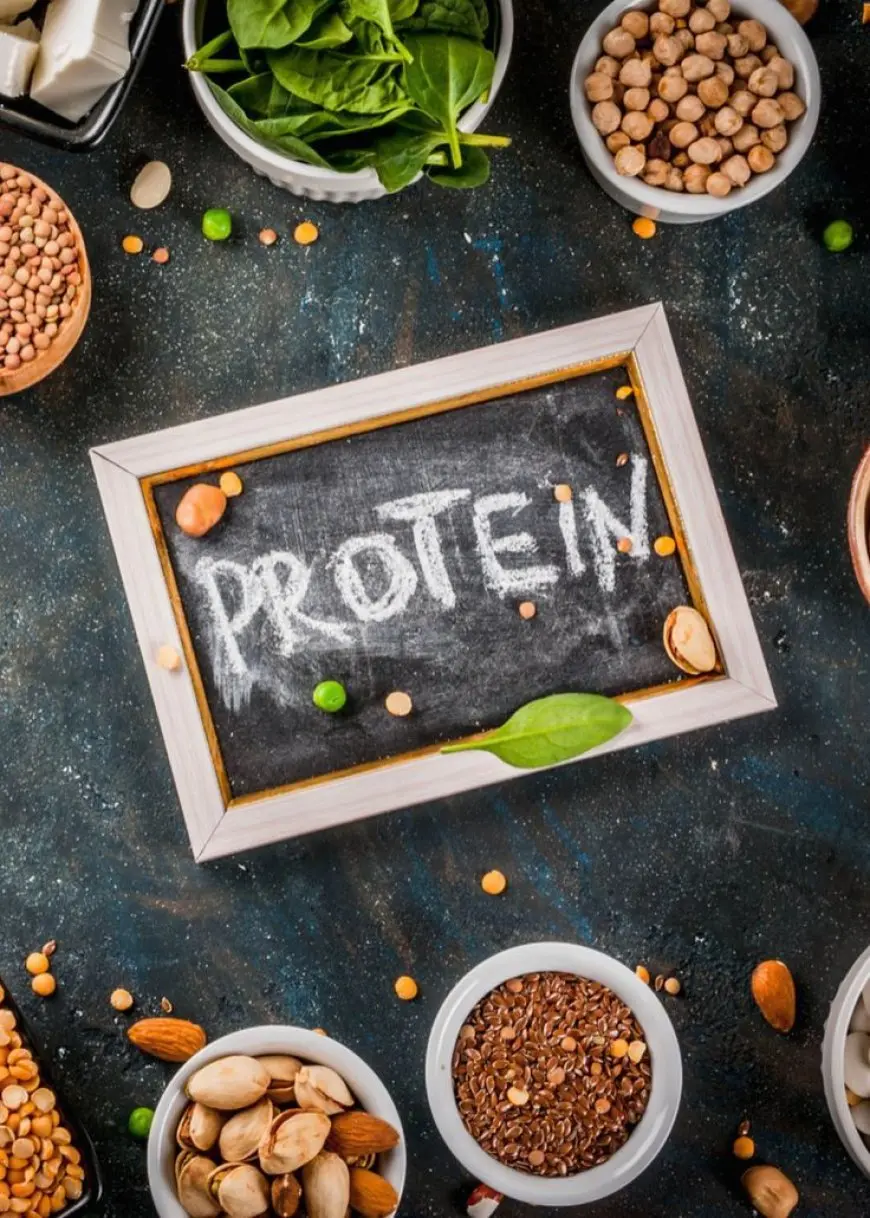The Benefits of a Plant-Based Protein Diet
The Benefits of a Plant-Based Protein Diet

A plant-based protein diet emphasizes foods that provide protein from plant sources rather than animal products. This dietary approach is gaining popularity due to its numerous health benefits and positive environmental impact. While plant-based proteins are often associated with vegetarian or vegan diets, they can be beneficial for anyone looking to improve their overall health, whether they’re aiming to reduce meat consumption or adopt a fully plant-based lifestyle.
1. Improved Heart Health
One of the key benefits of a plant-based protein diet is its potential to improve heart health. Plant-based proteins are typically lower in saturated fat and cholesterol compared to animal-based proteins. Diets rich in plant-based foods, including legumes, seeds, nuts, and whole grains, have been shown to reduce the risk of heart disease. The high fiber content of plant-based foods also contributes to lowering cholesterol levels, regulating blood sugar, and supporting healthy blood pressure.
By replacing animal proteins with plant-based alternatives, such as beans, lentils, and tofu, individuals can significantly improve their heart health and reduce their risk of cardiovascular diseases.
2. Weight Management
A plant-based protein diet can be a helpful tool for weight management. Plant-based proteins tend to be lower in calories and fat than animal proteins, which means you can eat larger portions without consuming excess calories. Additionally, plant-based foods are rich in fiber, which promotes feelings of fullness and helps control hunger, leading to reduced calorie intake. This combination of lower-calorie density and high fiber can contribute to a healthy weight, especially when combined with other wholesome plant foods like fruits, vegetables, and whole grains.
3. Better Digestive Health
A plant-based protein diet is high in fiber, which is essential for maintaining a healthy digestive system. Fiber helps regulate bowel movements, prevent constipation, and support the growth of beneficial gut bacteria. Plant-based proteins like beans, lentils, chickpeas, and quinoa not only provide protein but also fiber, making them excellent choices for promoting digestive health.
The consumption of fiber-rich plant proteins also supports a balanced gut microbiome, which can improve nutrient absorption and help reduce the risk of digestive issues such as irritable bowel syndrome (IBS).
4. Sustainable and Environmentally Friendly
A significant benefit of a plant-based protein diet is its positive environmental impact. Producing plant-based foods generally requires fewer natural resources—such as water and land—and generates fewer greenhouse gas emissions compared to raising animals for meat. By switching to plant-based proteins, individuals can significantly reduce their carbon footprint and contribute to more sustainable food systems.
Plant-based proteins are grown using fewer resources and are more environmentally friendly than animal-based proteins, making them a better choice for those who are concerned about the environmental impact of their diet.
5. Lower Risk of Chronic Diseases
Studies have shown that diets rich in plant-based proteins are linked to a lower risk of developing chronic conditions such as type 2 diabetes, high blood pressure, and certain types of cancer. The antioxidants, vitamins, and minerals found in plant-based foods have protective effects that help reduce inflammation, improve immune function, and support overall health.
For example, the high fiber and antioxidant content in plant-based proteins can help regulate blood sugar levels and improve insulin sensitivity, which can prevent or manage diabetes. Likewise, plant-based diets have been linked to reduced inflammation, which plays a role in the development of many chronic diseases.
6. Muscle Building and Repair
While many people associate protein with muscle building, plant-based proteins are equally effective at supporting muscle growth and repair. Contrary to common belief, plant-based proteins such as soy, quinoa, hemp seeds, and lentils can provide all the essential amino acids needed for muscle synthesis. These proteins are also easily digestible, making them an excellent choice for those looking to build or maintain muscle mass.
Athletes and fitness enthusiasts can benefit from a plant-based protein diet, as these proteins support muscle recovery after exercise and help build strength without the need for animal-based products. By incorporating a variety of plant-based protein sources into their diet, individuals can meet their protein needs and fuel their workouts effectively.
7. Better Kidney Health
A plant-based protein diet is also beneficial for those with kidney disease or those looking to prevent kidney issues. Unlike animal proteins, plant-based proteins produce fewer waste products, which can strain the kidneys. Studies have shown that reducing animal protein intake and replacing it with plant-based sources can help protect kidney function, especially in individuals with chronic kidney disease (CKD).
For individuals at risk of kidney disease, plant-based protein sources like beans, peas, lentils, and tofu are excellent alternatives to meat, as they provide sufficient protein without the harmful byproducts that animal protein creates.
8. Enhanced Skin Health
Plant-based proteins, rich in vitamins, antioxidants, and essential fatty acids, contribute to healthy, glowing skin. Many plant proteins, such as those from nuts and seeds, are high in omega-3 fatty acids, which are known to help reduce inflammation and promote skin hydration. The vitamins and minerals in plant-based proteins also support collagen production, which is vital for skin elasticity and preventing signs of aging.
Additionally, consuming a diet rich in plant-based proteins can reduce the intake of animal fats and processed foods, which may contribute to skin issues such as acne or premature aging.
Switching to a plant-based protein diet offers a wide range of health benefits, including improved heart health, weight management, better digestion, and a lower risk of chronic diseases. It also has a positive impact on the environment and can support sustainable living practices. By focusing on plant-based protein sources like legumes, nuts, seeds, and whole grains, individuals can enjoy a diverse and nutrient-rich diet that promotes overall well-being.
Whether you are looking to reduce your meat intake, adopt a vegetarian or vegan lifestyle, or simply incorporate more plant-based proteins into your diet, the benefits are clear. With a little planning and creativity, a plant-based protein diet can be both delicious and nourishing for your body and the planet.







